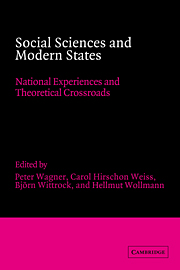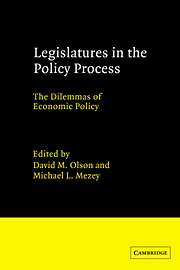3 results in Advances in Political Science

Social Sciences and Modern States
- National Experiences and Theoretical Crossroads
-
- Published online:
- 05 February 2012
- Print publication:
- 28 March 1991

Legislatures in the Policy Process
- The Dilemmas of Economic Policy
-
- Published online:
- 03 March 2010
- Print publication:
- 16 May 1991

Comparative Political Finance in the 1980s
-
- Published online:
- 07 December 2009
- Print publication:
- 25 August 1989

